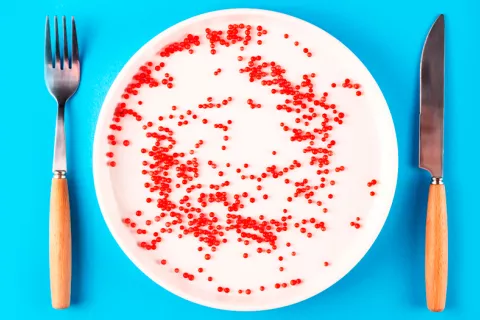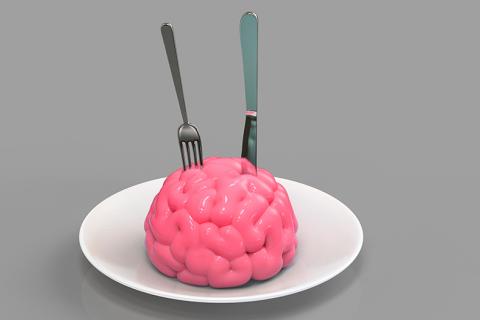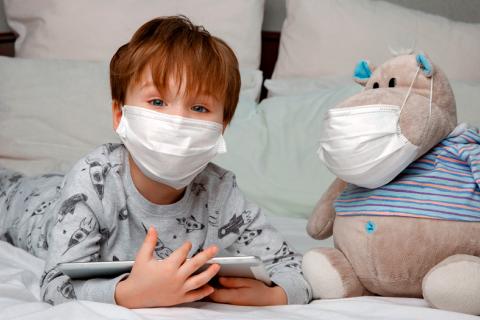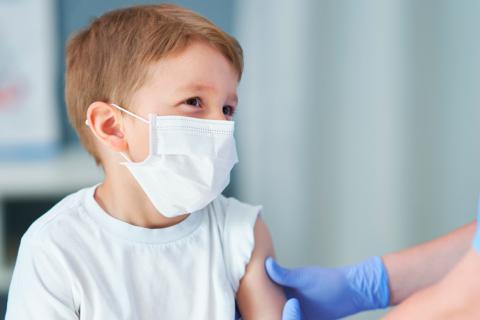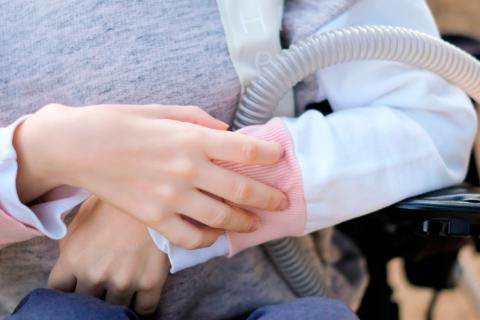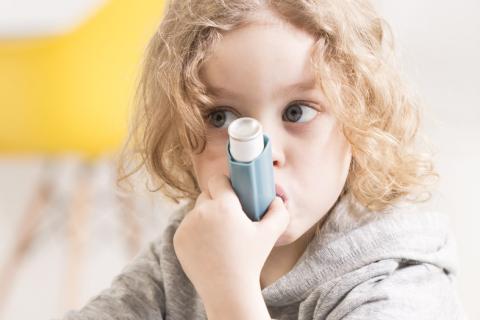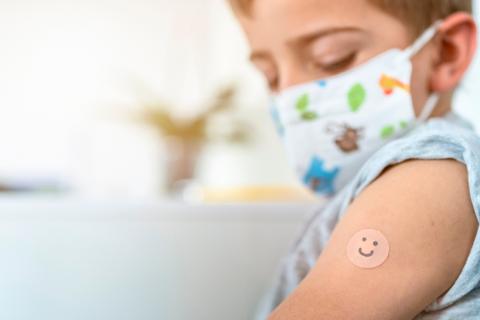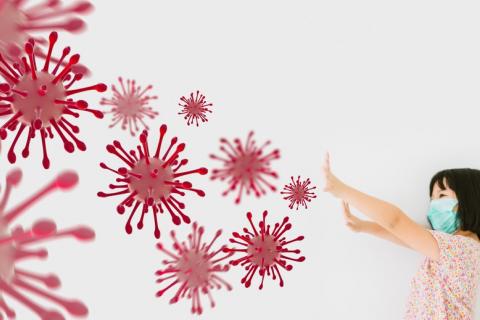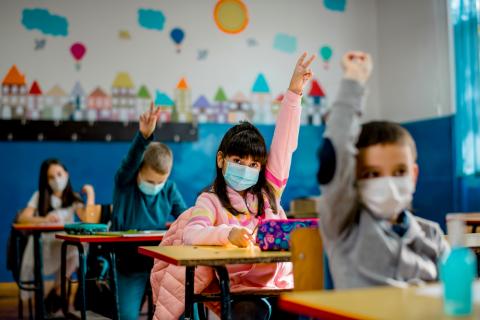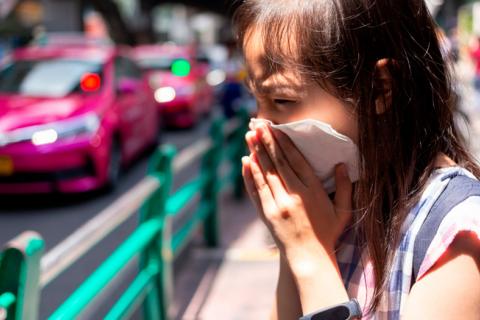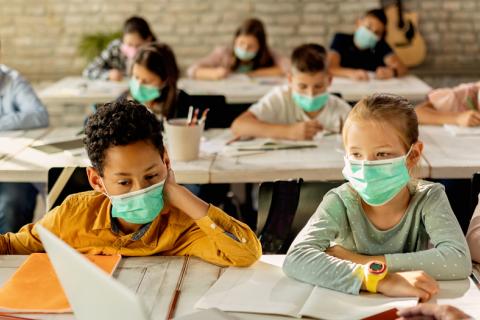Magnesium is key for the immune system and for fighting cancer
To fight pathogens and cancer cells, the T cells of the immune system need adequate levels of magnesium in the blood, a finding that may help improve cancer immunotherapy.
...
They create oleogels to make sausages without saturated fats
The CSIC develops oleogels (liquid vegetable oils) that act as substitutes for saturated fats in the preparation of sausages and breads, which reduces the cardiovascular risks associated with this type of...
Drinking soft drinks during pregnancy increases the risk of ADHD in children
Pregnant women who drink soft drinks with sugar every day have a 15% to 21% greater risk of their children having six or more symptoms of attention deficit hyperactivity disorder (ADHD).
...
Diet rich in flavonoids improves survival in Parkinson’s
Parkinson's patients who include three or more servings of flavonoid-rich foods, such as apples, berries, tea, or orange juice, in their diet improve their chances of living longer.
...
They find two ways to end peanut allergies in children
Two treatments for peanut allergy in children can induce remission so they can eat peanuts safely: oral immunotherapy – gradual introduction of the allergenic food – and its combination with a...
Selenium could curb memory loss and the effects of stroke
Eating foods rich in selenium, such as meat, cereals or nuts, could help slow the effects of aging on memory, as well as reverse the negative cognitive impact after suffering a...
Only 13.6% of products advertised as a Mediterranean diet are
Most of the foods and drinks that are advertised as 'Mediterranean' are not included in the nutritional pyramid of the Mediterranean diet. According to a study, only 13.6% of those...
The ingestion of microplastics alters the intestinal microbiota
The digestion of microplastics ingested with the diet causes a reduction in the diversity of the colon microbiota –a set of beneficial bacteria in the intestine–, in addition to altering the...
New clues in the brain link pain and eating behavior
An area of the brain involved in decision-making – the nucleus accumbens – plays a key role in the eating behavior of patients with chronic pain and may influence the development...
A mushroom enzyme is effective in fighting hepatitis C
The CSIC co-leads a study that has discovered in vitro that tyrosinase, an enzyme from white mushrooms, has antiviral action against the hepatitis C virus and is capable of inhibiting its...
Reusable plastic bottles release hundreds of chemicals
Drinking tap water stored for 24 hours from reusable plastic bottles could cause us to ingest several hundred chemicals, 70% of which are harmful to human health.
...
Prunes protect older women from bone loss
Prunes protect older women from bone loss
The cricket, third insect authorized as food in the European Union
Europe has approved the commercialization as food of the domestic cricket after confirming that its consumption is safe. This insect can be taken in various ways: dry as an appetizer,...
Reveal how caffeine protects against cardiovascular diseases
Consuming caffeine levels similar to those found in two or three cups of coffee, or its equivalent in tea, per day could reduce LDL (bad) cholesterol, which would help minimize the...
Eating meat less than 5 times a week may reduce cancer risk
Diets rich in fruits and vegetables and in which meat is eliminated, such as vegetarian or pescetarian, or its intake is limited to five or fewer times per week, could reduce...
Childhood cancer survivors have poorer health as they age
Outgrowing childhood cancer may increase the risk of poor cardiovascular health as you age, although these chances vary depending on the type of cancer you had and what treatments were used.
...
They discover the age at which children begin to appreciate humor
Children's ability to laugh and appreciate humor could begin as early as one month of age, with half of children reacting to these stimuli by two months and beginning to crack...
New guideline to treat children with multisystem inflammatory syndrome
The WHO has issued new guidelines on the treatment of children with multisystem inflammatory syndrome associated with COVID-19, recommending the use of corticosteroids to address this sequela that leads to heart...
The EMA authorizes the COVID-19 vaccine for children aged 5 to 11 years
The EMA (European Medicines Agency) has given the go-ahead for children aged 5 to 11 to be vaccinated against COVID-19 with the Pfizer vaccine. Of course, with a lower dose...
Spain funds new therapy for children with spinal muscular atrophy
30 children with Spinal Muscular Atrophy (SMA), the most common genetic cause of infant mortality, will be able to benefit from Zolgensma, the most expensive drug in the world, a new...
Children with uncontrolled asthma are at higher risk of being admitted due to COVID
Although the odds of serious COVID-19 events in children between 5 and 17 years of age are low, those with uncontrolled asthma are at higher risk of requiring hospitalization if infected...
Spain will vaccinate children aged 5-11 from December 15
The Spanish Ministry of Health endorses vaccinating children between the ages of 5 and 11 against COVID-19 after the approval of the EMA. Childhood vaccinations will start from the second...
Children’s faster immune response protects them from COVID-19
They find that children who become infected with SARS-CoV-2 do not usually develop severe symptoms of COVID-19 thanks to differences in their immune systems that make it more effective at fighting...
Lack of sleep makes teens eat more sugar
Teenagers who do not sleep the recommended hours consume foods richer in carbohydrates and added sugars, which can mean more than two kilos of extra sugar per year and increase their...
Children’s stories perpetuate gender stereotypes
Children's stories can consolidate gender stereotypes in children, since they establish a role for women around language and the family, while men are associated with mathematics.
...
Health opts for a face-to-face return to the classroom and fewer quarantines
On January 10, the students will start the school year in the classrooms in person, as decided by the Ministry of Health. In addition, quarantines are reduced to seven days...
2 million children develop asthma from traffic pollution
Breathing air polluted by nitrogen dioxide or NO2 – which comes from emissions from vehicles, power plants and industrial areas – can cause millions of children to develop asthma each year.
...
There will only be quarantine in classrooms with 5 or more positives or 20%...
In schools, complete quarantines will no longer be carried out unless there are 5 or more infected with COVID-19 in the classroom or more than 20% of students with the disease,...
Breastfeeding reduces maternal cardiovascular risk
Women who have breastfed their children at some point in their lives have a lower risk of developing cardiovascular disease or stroke and up to 17% less chance of dying from...
Lonely teens have poor grades and poorer mental health
Adolescents who feel lonely at age 12 are at greater risk of leaving school with poor grades, developing mental health problems and having a poorer quality of life later in life.
...








